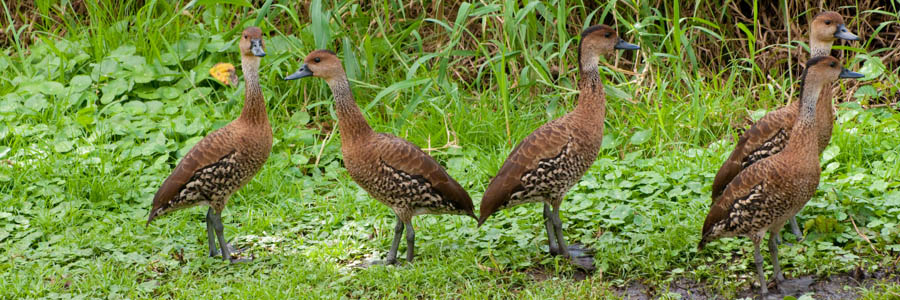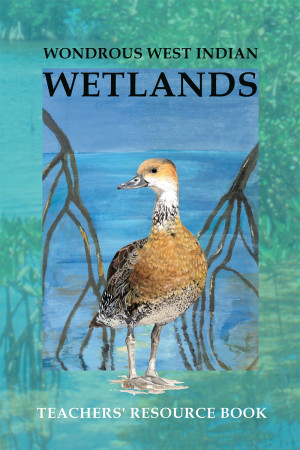West Indian Whistling-Duck and Wetlands Conservation Project

Restricted to the northern West Indies, the West Indian Whistling-Duck (WIWD) is among the rarest ducks in the Americas and is listed as a Globally Threatened species. To reverse its decline and to prevent further loss and degradation of their wetland habitat, BirdsCaribbean launched the WIWD and Wetlands Conservation program.
Our strategy for this region-wide program has been to produce educational materials on birds and wetlands, and through intensive workshops, train enthusiastic teachers and local partner staff, who in turn, teach children and train others. This “multiplier effect” has helped us to reach a wide audience and develop a network of local people that care about birds and wetlands and become involved in their conservation.

This program also develops Watchable Wildlife Ponds—wetlands equipped with interpretive signs and viewing areas where local people, school groups, and tourists can easily observe whistling-ducks and other wildlife.
A principle product of the program is the Wondrous West Indian Wetlands: Teachers’ Resource Book, a 276-page teacher’s manual containing comprehensive background information and educational activities relating to the ecology and conservation of Caribbean wetlands. The book (available in English, Spanish, and French) and other educational materials are being distributed in conjunction with two-day Wetlands Education Training Workshops throughout the region.
Spanish version: Los Maravillosos Humedales del Caribe Insular: Libro de Trabajo para el Maestro
French version: Merveilleux Milieux Humides dees Antilles: Manuel de Réferénce pour Les Professeurs et Éducateurs
Several other resources have been produced: bird identification cards, coloring books, posters, mangrove identification booklets and more. All can be accessed on our resource page.
Learn more about the West Indian Whistling-Duck here and access our coloring page.
To date this program has trained over 3,800 educators in 21 countries/islands. Read about our workshops below!

One comment
Comments are closed.